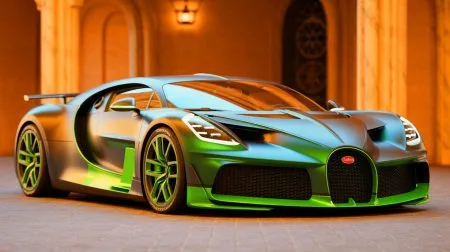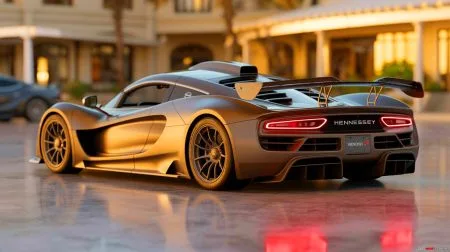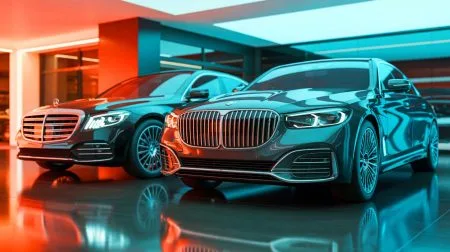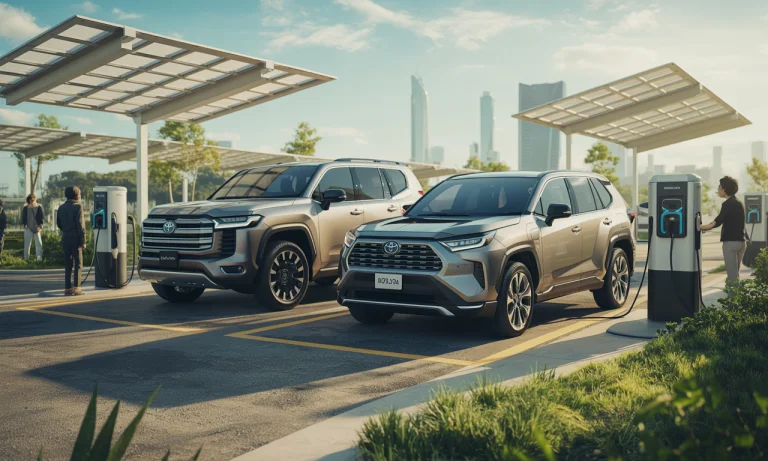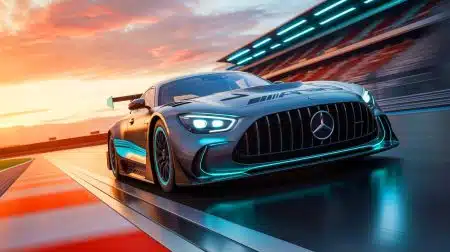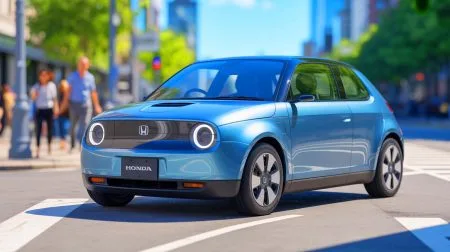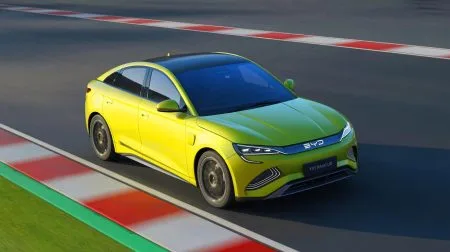The American automotive landscape is transforming, and Toyota has chosen this moment to shake up its own legacy. As buyers in 2025 continue to turn away from sedans, the brand’s flagship Kentucky facility pivots, signaling the end of a decade of Lexus ES production. Shifting gears towards a more electrified future, Toyota will assemble two eagerly anticipated all-electric SUVs, inspired by the storied Land Cruiser and the globally-popular RAV4. This marks a notable leap for the Japanese giant, which for years preferred hybrid technology over full battery-electric vehicles. Now, these iconic nameplates will drive Toyota’s renewed EV ambitions from the heartland of America, joining a fierce competition against Tesla, Ford, Chevrolet, Nissan, Hyundai, Kia, and Volkswagen. Onlookers are left wondering: could this new electric duo define the future of American-made SUVs, or simply amplify the ongoing surge in electric vehicle demand?
Electric Toyota Land Cruiser and RAV4: An Ambitious Shift in the US SUV Market
Manufacturing lines in Kentucky are humming with anticipation. For over ten years, this cornerstone facility built the Lexus ES—an end that coincides with a surge in electric vehicle production needs due to tariffs and changing consumer habits. By relocating the ES back to Japan, Toyota creates space to launch all-new, three-row battery electric SUVs: one derived from the capable Land Cruiser heritage, the other invoking the practicality and mass appeal of the RAV4. The move reflects broader industry waves, as SUVs now surpass sedans in market influence, with companies like Tesla and Ford reshaping expectations. Competitors such as Chevrolet and Nissan steadily strengthen their own electric portfolios, yet Toyota’s entry, with legendary badges, sets the stage for a new chapter.
| Model | Legacy Powertrain | Upcoming EV Version | Production Site |
|---|---|---|---|
| Land Cruiser | Hybrid/Gasoline | Three-row Electric SUV | Kentucky, USA |
| RAV4 | Hybrid/Gasoline | Three-row Electric SUV | Kentucky, USA |
Strategic Manufacturing: Why Kentucky Matters for Toyota’s EV Ambitions
Choosing Kentucky is about more than logistics; it’s a reflection of Toyota’s evolving American identity. The state not only represents reliable infrastructure and skilled labor, but also grants Toyota the ability to sidestep burdensome tariffs affecting imported EVs. As Ford and Hyundai strengthen their US operations, this local investment repositions Toyota alongside American icons in auto manufacturing. Such a shift dovetails with heightened demand for sustainable mobility solutions, where the blend of heritage and green technology resonates with buyers that demand more than just efficiency from their next purchase.
For the workers in Kentucky, this means training on new technologies and processes, setting a new benchmark for the region’s auto industry. And as the echoes of past hybrid successes inform the EV ramp-up, questions linger: can the Land Cruiser’s legendary toughness translate to an all-electric experience, and will the RAV4 continue its dominance in this new era?
From Hybrid Trailblazer to Full Electric: Toyota’s New Roadmap for 2025 and Beyond
When other brands plunged boldly into battery-electric vehicles, Toyota charted its own course by prioritizing hybrids. The results were clear—models like the RAV4 Hybrid and Prius built a reputation for durability and lower emissions. Yet the industry is moving on, with Tesla, Volkswagen, and Kia setting aggressive EV targets. Now, Toyota intends to electrify at least seven models in the US by 2027, with the new Land Cruiser and RAV4 EVs poised to be the vanguard. This ambitious foray will see Toyota standing shoulder to shoulder with the likes of Hyundai, Kia, and Nissan, each vying for dominance in the electrified family SUV space. The question is no longer if the market is ready, but whether legacy brands can reinvent themselves while preserving what made these models iconic in the first place.
| Brand | Notable Electric SUVs | Planned Production (US) |
|---|---|---|
| Toyota | Land Cruiser EV, RAV4 EV | Kentucky |
| Tesla | Model X, Model Y | California, Texas |
| Ford | Mustang Mach-E | Mexico, Michigan |
| Chevrolet | Blazer EV, Equinox EV | Michigan |
| Nissan | Ariya | Tennessee |
The Consumer Connection: Expectations, Challenges, and a Growing EV Community
For the American family, practicality and status drive SUV purchases. The RAV4 and Land Cruiser names carry a trust that’s tough to rival, even as startups and disruptors like Tesla rake in headlines. Toyota’s strategy banks on this loyalty while aiming to close the feature gap with tech-forward rivals. Embedding modern safety, connectivity, and range technologies, the Kentucky-built EVs will have to meet a diverse set of expectations. Nearby, an owner in Louisville recalls trading in his reliable gas RAV4 for a hybrid in 2022—a move that lowered his commute costs without sacrificing cargo space or comfort. He’s now watching, along with thousands of others, for Toyota’s answer to the growing calls for all-electric reliability and adventure, a promise many see as essential in 2025’s rapidly evolving car market. For a broader view of family-centric options, check out insights on urban-friendly SUVs for families.
Beyond just Ford or Chevrolet, competition is relentless across the board—Volkswagen’s electric SUVs, Nissan’s expanding offerings, and Hyundai’s surging IONIQ lineup all push Toyota to deliver not only on badge loyalty, but also on real-world range, charging infrastructure, and driving excitement. For those weighing EV versus diesel for their utility needs, a detailed look into diesel and electric truck comparisons underscores this shifting paradigm.
The Ripple Effect: How Toyota’s EV SUVs Reshape the Industry
The arrival of electric Land Cruiser and RAV4 models signals a deeper ripple through the auto world. As Toyota’s decision nudges other full-line automakers, echoes are felt in related fields—from increased investments in local supply chains to revamped dealership experiences. Kentucky’s manufacturing prowess attracts more attention, bolstered by a $1.3B commitment for these EVs. Meanwhile, workers prepare for a future where batteries occupy more space and high-voltage systems demand new expertise. At the same time, production adjustments let Toyota boost output for high-demand models like the Grand Highlander, ensuring the company meets both current and future needs. For those curious about broader trends, 2025 truck trends offer a lens into market forces at play—where ruggedness and sustainability intersect.
As more drivers weigh the benefits of electric SUVs, many look to trusted sources for detailed advice. From comparing the latest pickup trucks of 2025 to exploring affordable supercar options or analyzing the cost-savings of hybrid supercars, it’s clear that electrification’s reach extends far beyond SUVs. With Toyota’s bold step, Kentucky’s legacy of auto-making innovation enters its next act—reshaping perceptions and possibilities for the entire industry.
What makes Toyota’s Land Cruiser and RAV4 electric SUVs significant?
They represent a major pivot for Toyota, transitioning iconic, trusted nameplates into the US-made electric SUV market. This shift is strategic, meeting rising demand for sustainable vehicles and countering strong competition from Tesla, Ford, Kia, Hyundai, and Volkswagen, each pushing boundaries in the US SUV segment.
Why did Toyota move Lexus ES production out of Kentucky?
Declining sedan demand and the need to boost local EV output drove Toyota to return Lexus ES production to Japan. This allowed Kentucky to specialize in the all-new electric Land Cruiser and RAV4 SUVs, supporting tariff-free US sales and investment in future technologies.
How do Toyota’s electric SUVs compare to rivals?
Set against popular models from Tesla (Model Y/X), Ford (Mach-E), and Chevrolet (Blazer EV), Toyota’s upcoming models leverage brand loyalty and a legacy of reliability. The Kentucky plant’s focus on three-row layouts also taps into a key American market for family vehicles.
When can buyers expect the new Land Cruiser and RAV4 EVs?
Production is planned to begin after the Lexus ES shift, with official launches anticipated according to Toyota’s 2027 seven-EV roadmap for the US market. Stay tuned for evolving timelines as manufacturing and market dynamics unfold.
Which other trends influence Toyota’s US factory strategy?
Growing tariffs, a surge in electric truck and SUV demand, and the success of models like Grand Highlander impact Toyota’s production plans. Updated dealership experiences and advanced EV training for workers further shape the local and national outlook for electrified vehicles.
Did you like it? 4.5/5 (29)
